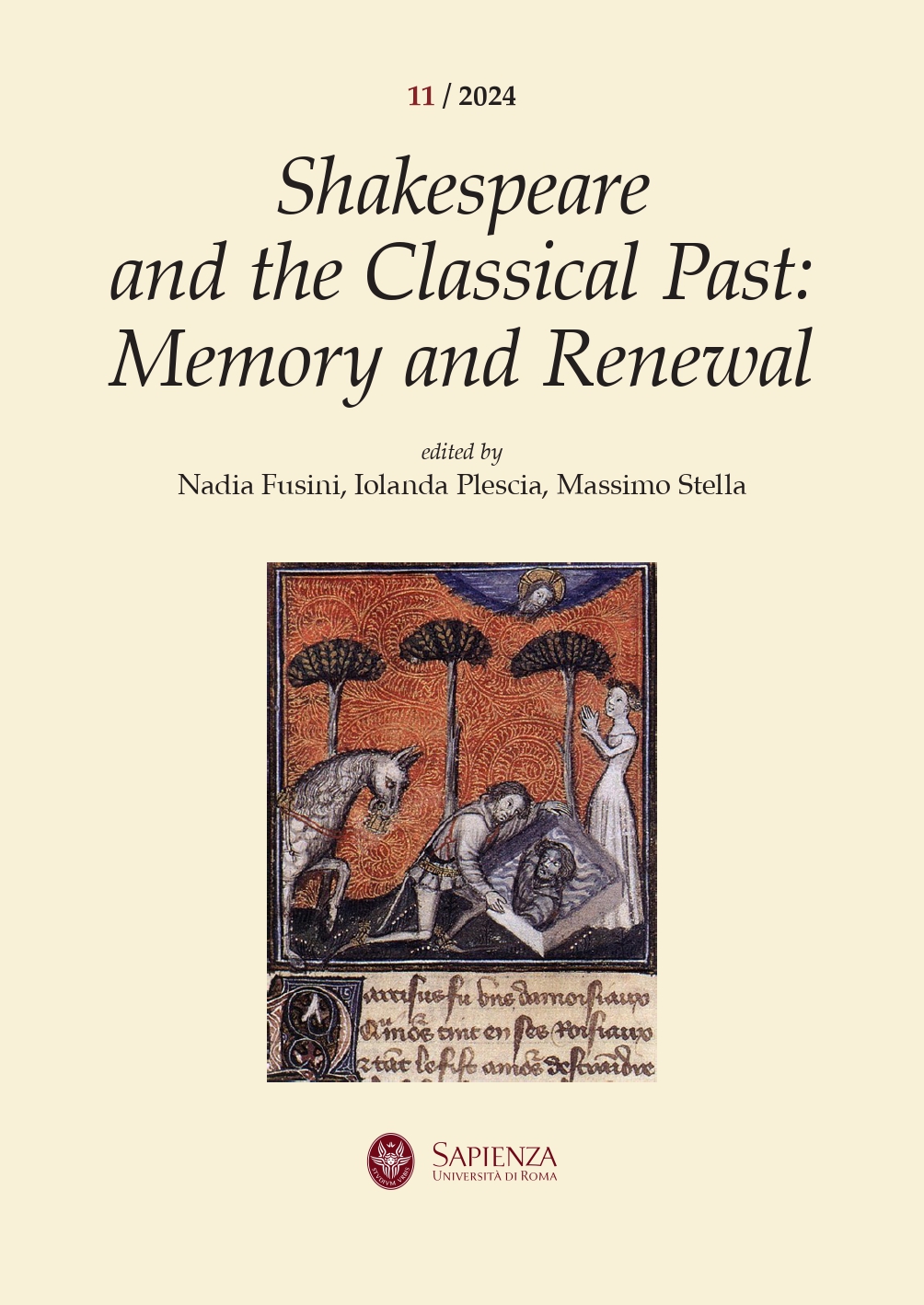A Magnus Amator in Illyria: Shakespeare and the Memory of Plautus
DOI:
https://doi.org/10.13133/2283-8759/18974Keywords:
Comedy of Errors, Twelfth Night, Plautus's Menaechmi, comedy of disorder, Shakespeare's languageAbstract
It is well known that Shakespeare based his comedies about twins, Comedy of Errors and Twelfth Night, on Plautus’s Menaechmi. The link between the two is often understood as structural, and there is little doubt that the comic possibilities of (re)production that so animate the Roman play form the backbone of both of Shakespeare’s comedies based on the idea of twins. In this essay, however, I take a different perspective, arguing that Shakespeare was indebted to the Plautine play at a linguistic level as well as a thematic one. In particular, I suggest that the word “great” or “magnus” carries demonstrable lineage between the two plays, and that this points to an important dimension of the comedy of disorder.Downloads
Published
2024-12-30
How to Cite
Michael Saenger. (2024). A Magnus Amator in Illyria: Shakespeare and the Memory of Plautus. Memoria Di Shakespeare. A Journal of Shakespearean Studies, (11). https://doi.org/10.13133/2283-8759/18974
Issue
Section
Articles


